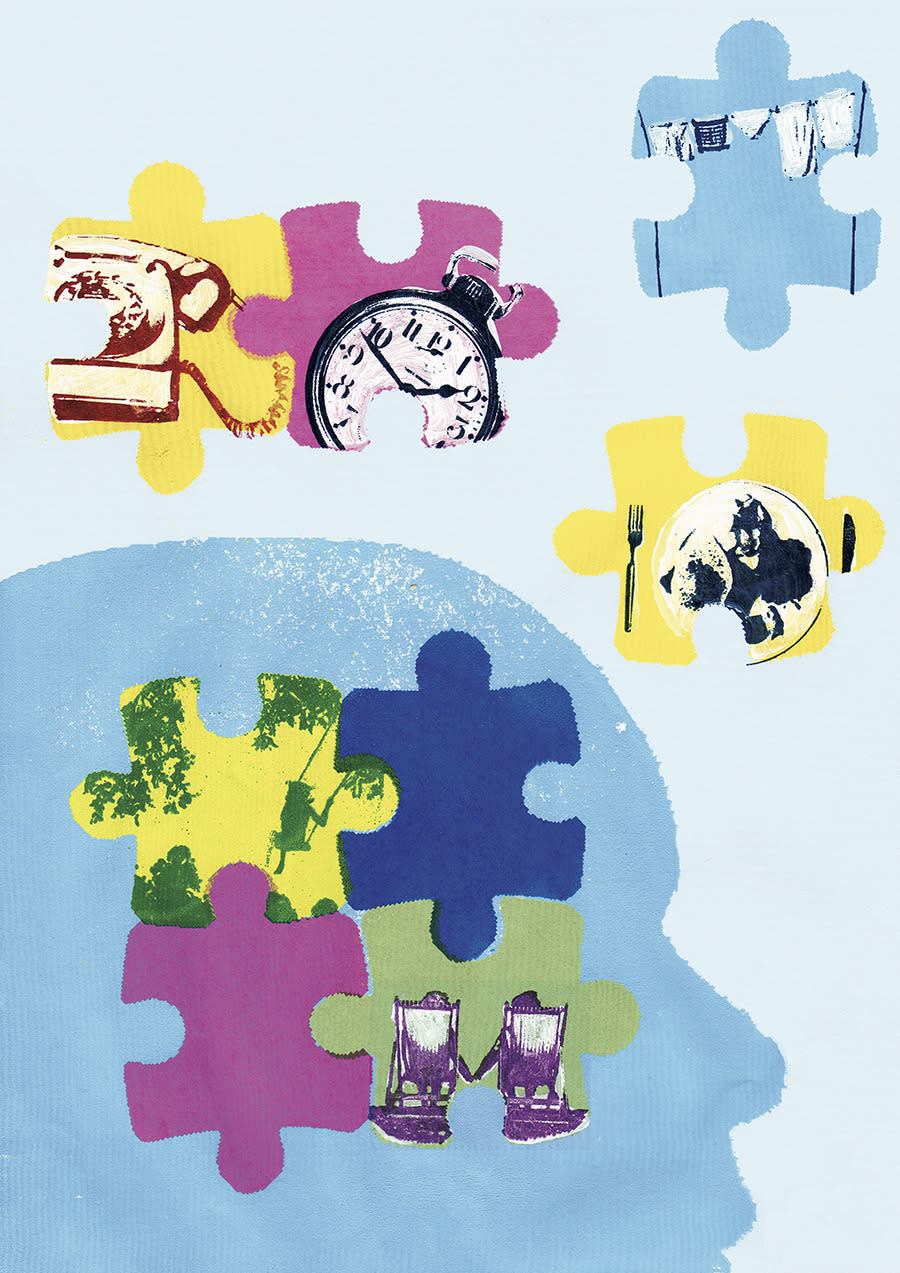Negative Thoughts About Aging Could Impact Alzheimer’s Risk

Can a good attitude actually lower your chances of Alzheimer’s? (Getty)
Lowering your risk of developing Alzheimer’s disease may be as simple as changing your attitude about getting older.
That’s the takeaway from a new study from the Yale School of Public Health that analyzed the link between negative thoughts on aging and the development of Alzheimer’s disease.
For the study, researchers analyzed attitudes toward aging of 158 healthy people in their 40s who participated in the Baltimore Longitudinal Study of Aging, the nation’s longest-running scientific study of aging. They were asked to weigh in on statements like “older people are absent-minded” or “older people have trouble learning new things.” Scientists also analyzed MRI brain scans that were taken when those people were in their late 60s, as well as brain autopsies.
Related: Early Signs of Alzheimer’s Disease Found in Patients As Young As 20
Here’s what they discovered:
People who had more negative thoughts on aging had a greater decline in volume of their hippocampus, the area of the brain that is important to memory. (That decrease in volume is an indicator of Alzheimer’s disease.)
They also had a significantly greater number of two more Alzheimer’s indicators: amyloid plaques (protein that builds up between brain cells) and neurofibrillary tangles (twisted strands of protein that build up between brain cells)
Researchers say the study is the first to find a connection between brain changes related to Alzheimer’s disease to a psychosocial risk factor.
According to the Alzheimer’s Association, Alzheimer’s disease is the only top 10 cause of death in America that can’t be prevented, cured, or slowed down. An estimated 5.1 million people aged 65 and older suffer from the disease, and that number is expected to increase to 7.1 million by 2025.
Related: Better Sleep May Be Incredibly Important to Alzheimer’s Risk
But how does worrying about aging factor in?
Researchers point to stress as a potential factor, which Alzheimer’s disease expert Richard Caselli, MD, a behavioral neurologist with the Mayo Clinic in Phoenix, Arizona, says isn’t shocking, given that stress can impact our bodies in a number of ways. However, he tells Yahoo Health that he’s surprised that researchers were able to find such a strong connection.
Caselli points out that there may be more to the link than just stress. “When we ask ourselves what drives somebody to be worried about Alzheimer’s or have a negative view of it, one of the contributors is close experience with it, like a relative,” he says. Since genetics are of the largest known risk factors for the disease, Caselli says the worry may simply be a proxy for a person’s own risk.
Related: Researchers Have Discovered BRCA1 Link to Alzheimer’s
However, he points out that there is a known link between people who tend to be more neurotic and poor dietary and exercise habits. Eating a healthy diet and exercising regularly are thought to help lower a risk that a person will develop dementia, which might help explain the connection.
But Clifford Segil, DO, a neurologist at California’s Providence Saint John’s Health Center tells Yahoo Health that the link may simply be something we don’t yet understand. “There’s a whole mind-body connection that modern medicine is not good at diagnosing or appreciating,” he says.
While the findings are, well, worrying, Segil offers up this advice: “Everyone is worried about getting old, but you should be more optimistic that by the time you get old, modern medicine will be able to take care of you.”
Let’s keep in touch! Follow Yahoo Health on Facebook, Twitter, Instagram, and Pinterest.


